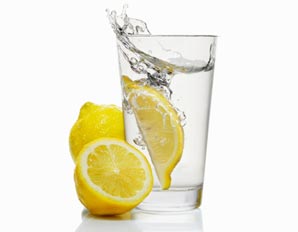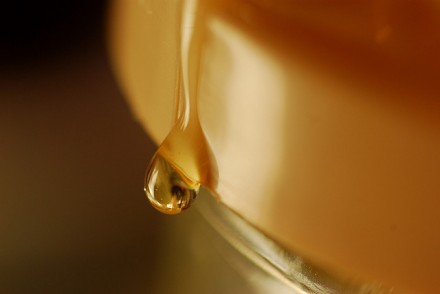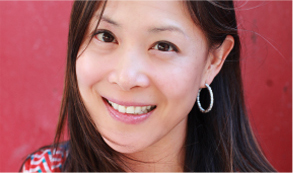TIPS TO IMPROVE YOUR ESTROGEN NOW SO YOU’LL FEEL BETTER LATER
The Menopause Experience
Ask any woman who has already hit menopause and they’ll tell you that at some point, your estrogen will be gone gone gone. That’s because when your ovaries stop producing eggs, they also stop producing estrogen and progesterone. I am 41 and recently noticed more anxiety, irritability, low energy, and low libido. Those are all signs of perimenopause, which occurs between the ages of 40-44. Yikes! I have been on a pretty strict paelo diet, which has cured my husband of acid reflux, PLUS he lost 20 lbs. I haven’t eaten soy, legumes, or much rice in almost a year. My strict vegetable, nut, meat and fruit diet has not been contributing to my estrogen reserve. I realized that it’s time I focus on boosting my ovarian health so my ovaries don’t quit on me, and building up my phytoestrogens so that I have a good reserve for when they do eventually retire.
So why do some women have terrible symptoms during menopause, like hot flashes, insomnia, fatigue and poor memory, while others don’t sense much change at all during this transitional period of their life? Just like some people will be prone to diabetes if they eat a diet high in sugar and refined carbohydrates, some women will be prone to a menopause with unpleasant symptoms if they tax their bodies with poor sleep, poor diet, and high stress levels. The earlier we begin to take care of ourselves and our ovaries, the more chance we give them to age gracefully, thus affecting the rest of our body less abruptly.
Menopause can occur anywhere between 45-55 years of age, with some exceptions to that rule. I have seen women who have undergone fertility treatments, like IVF or IUI, experience menopause earlier than normal, as young as 41, due to all of the fertility drugs. Other women who have undergone certain cancer treatments can have menopause symptoms that can last beyond 55 years of age and even experience symptoms when they’re 60 and older. Of course, some degree of your menopause experience will be linked to genetics, but your experience also depends a lot on your current state of health and how well you’ve taken care of yourself over the years. If you feel like you are having unpleasant symptoms, like anxiety and irritability, hot flashes and extra weight gain, you may be low in estrogen and hitting perimenopause. Don’t let menopause sneak up on you. It’s never too late or too early to be proactive about ovarian health.
The TCM View of Menopause
So how does TCM look at menopause? First you’ll have to understand the concept of yin and yang because menopause is basically a deficiency of yin. Everything in nature and within us is in fluctuation, constantly changing and rebalancing between yin and yang. For example, we experience the earth part of the time in yin, or night time when the moon is out, and part of the time in yang, or daytime when the sun is out. Yin as a concept can be thought of as female, passive, and cool, while Yang is more positive, active, and warm. Blood is also considered yin. Every month when a woman has her menstrual cycle, she loses yin. When a woman loses sleep, or gives too much of herself, she loses yin. When a woman gives birth and breast feeds, she loses yin. It’s no wonder that by the age of 50, a woman is depleted of yin! TCM uses food, acupuncture, herbs, and exercises to help boost yin, balance hormones and increase ovarian health.
Foods to Boost Ovarian Health and Yin
Asia has cultivated the fine art of a diet rich in healthy, yin boosting foods. Foods in the asian diet, like soy, are rich in isoflavones – Isoflavones are a type of phytoestrogen, or plant estrogen, that mimics the hormone in your body. These compounds are found in larger amounts in soy and red clover. Soy that is digestible and beneficial include: Edamame, tofu, tempeh, soy bean curd, and fresh soy milk. Soy that is not beneficial includes any processed soy products like soy dogs, soy burgers, even the soy milk we get at the regular grocery store. Soy has been controversial for breast cancer patients that have estrogen positive cancer. Right now it is back on the “good” list, but make sure to eat those sources of soy that I mentioned before.
Green tea, split peas, pigeon peas, peanuts, chickpeas, lima beans, fava beans, lentils and flaxseeds also contain isoflavones. The concentration of isoflavones in these foods is extremely low when compared to soybeans. Foods made primarily from soy contain 120 to 170 milligrams of isoflavones per 100 grams of the product, whereas the legumes, nuts and seeds contain only 1 to 2 milligrams of isoflavones per 100 grams.
Other foods that pump up yin are shellfish, black and white sesame seeds, and kidney beans. A deficiency of yin can lead to dryness. That’s why some women experience dry skin, dry vaginal fluids, and thinning hair. Beneficial fats are critical. Healthful choices include fatty fish, free-range eggs, grass-fed butter, goat and sheep cheeses, olive and coconut oil, dark poultry meat, pork, nuts, and avocado. Soups and stews rich with grass-fed animal fats are very helpful. Other moistening foods include black beans, green beans, Napa cabbage, winter squash, yams, sea vegetables, and millet. If you are having hot flashes, include some cooling foods like raw fruits and vegetables, especially celery, watermelon, and berries.
Also, try to avoid too much coffee, which drains your adrenals and your yin, and use green tea instead, which has isoflavones! I will be posting recipes that are rich in yin foods soon!
Herbs That Benefit Menopause
I would recommend that you find a licensed practitioner/herbalist to work with you to find an appropriate herbal regiment. While herbs can decrease symptoms of menopause, herbs can also be harmful if not taken correctly.
What I usually recommend to my patients who are having perimenopause or menopause symptoms depends on their symptoms. For hot flashes and night sweats, a formula called Zhi Bai Di Huang Wan, or Eight Flavor Rehmannia Extract is very effective. For difficulty staying asleep through the night, palpatations and anxiety, Tian Wang Bu Xin Dan, or Celestial Emperor, is very helpful.
Please consult with your doctor and an herbalist for a safe and beneficial herbal experience.
Activities to Boost Ovarian Health
Since stress is such a trigger for so many bad reactions in your body, make sure you take time to include positive habits in your weekly routine. Do more yoga, especially yin yoga, take more walks in nature, practice or learn meditation, and give thought to what you eat and drink. Enhance your spiritual life, and practice love and compassion on a daily basis. Make happiness a habit! Also, use alternative medicine to help get in balance. If you don’t have an acupuncturist, find one near you. A great resource to find a practitioner in your area is: www.acufinder.com
I would also recommend taking care of your adrenals. Adrenal fatigue can deplete estrogen. Running on empty, as they say, can quickly lead to adrenal fatigue. A few habits NOT to fall into include making coffee your breakfast choice, then running around until midday before eating. That act in itself will drain your adrenals. Another act of assault to your adrenals can be over exercising and not taking recovery time. Not getting adequate sleep is also a no no. Or letting yourself stress over the little things, and the big things! Living a life in balance will let you enjoy the second half of your life as much as you enjoyed the first half, or more!
photo credit: flickr: carrie







No Comments